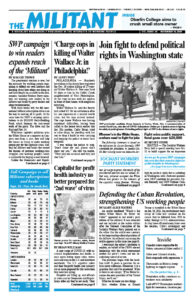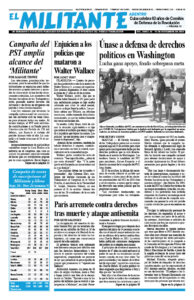The threatened disclosure of the names and addresses of Socialist Workers Party Presidential electors ignores a fundamental constitutional principle: as the Supreme Court stated in its great decision of the 1950s protecting civil rights organizations in the South, “inviolability of privacy in group association may in many circumstances be indispensable to preservation of freedom of association, particularly where a group espouses dissident beliefs.”
That surely is the case here. In my law firm’s many decades of representing the SWP, we have seen and proven in court and before administrative bodies (such as the Federal Election Commission) a long pattern of governmental harassment and also, importantly, hostility by private individuals and groups that has gone well beyond debate and disagreement to encompass economic reprisal, loss of employment, and physical threat.
Far from being a thing of the past, SWP members have received death threats during this current Presidential campaign in the State of Washington.
The threat to First Amendment freedoms from the threatened disclosures is real, both to persons wishing to associate with the SWP and, by the precedent it would set, to the many others wishing to associate with causes and organizations that may be the target of governmental or private hostility.
There is no overriding, countervailing public need for disclosure that could possibly justify disregard of the fundamental constitutional principle at stake in these circumstances.
Michael Krinsky,
Partner, Rabinowitz Boudin Standard Krinsky & Lieberman

